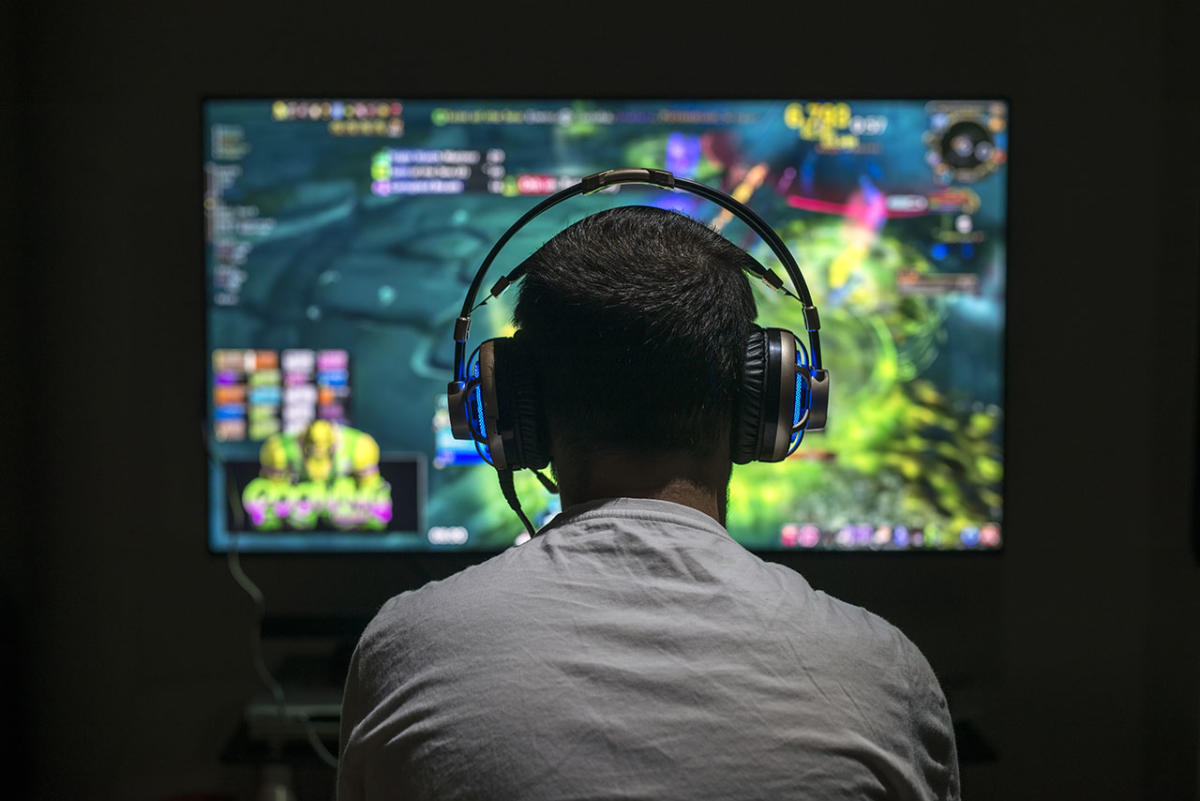In the dynamic gaming world, immersive quality and endurance are essential. The significance of ergonomic design in monitors cannot be overstated. As players delve deeper into virtual realms, gaming monitors’ physical comfort and well-being play an important role in ensuring a seamless gaming experience.
To enhance the gaming experience and reduce eye strain, a modified display is an ideal solution. Ergonomics play a major role in providing the best of comfort. Monitor height adjustment for the top of the screen is at or slightly below eye level. This ensures that eyes are lower when viewing the middle of the screen, which leads to more comfortable viewing.
Read more: PM meets esports athletes
Maintain a distance of at least 20 inches between the eyes and the screen or around an arm’s length away. For larger screens, increase the viewing distance appropriately. Creating an optimal gaming setup is crucial for maximizing fluency and minimizing discomfort during long hours of gameplay. Two key elements that significantly enhance productivity are adjustable monitor stands and ergonomic lighting.
Tilt
The tilt feature in monitors revolutionizes the interaction with the screen, providing unparalleled comfort and versatility. Imagine working on a project late into the night. With a regular fixed-angle monitor, you might find yourself straining your neck to get the right viewing angle. The tilt feature-equipped monitor can be effortlessly adjustment-friendly, and the screen can be used to the preferred angle.
By embracing ergonomic design principles, gaming monitor manufacturers are paving the way for a healthier gaming environment where players can thrive without compromising on comfort or performance
Whether tilted slightly upwards for a better view spreadsheet or tilted downwards for a more immersive gaming experience, the tilt feature offers customizable comfort. This simple adjustment enhances posture and reduces eye strain, ensuring a more comfortable and productive computing experience.
Pivot
In pivot monitor has the ability to rotate the screen from landscape to portrait orientation and vice versa. This feature is handy for professional’s work with documents, coding, or design work that benefits from a vertical layout for gaming it plays a vital role for multi-tasking while live streaming. A graphic designer may find working on a portrait-oriented monitor easier when creating posters or brochures.
Swivel
The swivel features in gaming monitors allow users to rotate the screen horizontally, usually up to 90 degrees in each direction. This functionality enables gamers to adjust the monitor’s orientation for a comfortable viewing angle, especially when switching between landscape and portrait modes. These capabilities enhance flexibility and ergonomic comfort, making finding the optimal position for extended gaming sessions easier.
Adjustable Stands: Customized Comfort for Extended Play
Ideally, your line of sight should be aligned with a specific area on your screen. That is around 5 to 10 cm below the top-corner of the monitor. Make sure the center of it is around 17 to 18 degrees lower than the level of your eyes by taking a measurement. When you work or play games, this precise placement will offer the clearest and most comfortable vision.
Adjustable monitor stands are an excellent investment for anyone who spends a significant amount of time in front of a computer screen. Stands allow you to position your monitor at eye level, reducing strain on your neck and preventing the development of a hunched posture.
Overall, they allow improvement in comfort and focus by aligning the screen with the natural line of sight, increasing productivity. Adjustable monitor stands provide the flexibility to tilt, swivel, and rotate your screen, enabling to find the perfect viewing angle for different tasks. For instance, live streaming and enhancing communication and engagement.
Blue Light Filters: Protecting Eyes for Long-Term Gaming
Prioritize monitors with anti-flickering capabilities and reduced blue-light technologies when you’re shopping. These traits are essential because they reduce low light levels, which frequently cause fast flashing lights.
Stable light sources are emitted by displays with flicker-free capabilities, which are vital for avoiding problems with eye strain. Regular displays, on the other hand, flicker to change brightness, sometimes producing low light levels in between bright spots. Because users might not see the flickers, which can strain their eyes, this inconsistency is troublesome. Furthermore, some people have been known to experience headaches and eye strain as a result of blue light. As a result, a lot of gaming monitors come with customizable blue light settings to help with discomfort.
The Synergy of Ergonomic Design: Optimal Comfort & Performance
The combination of adjustable stands and blue light filters represents a synergistic approach to ergonomic design in gaming monitors. Together, these features prioritize the well-being of gamers by providing customized comfort and protecting their eyes from prolonged screen exposure.
Read more: 5 essentials to build a more comfortable and productive work-from-home setup
As the gaming industry continues to evolve, we can anticipate further innovations in monitor ergonomics. These advancements will enhance gaming comfort and promote healthier gaming habits, ensuring that players can immerse themselves in their favourite games while prioritizing their physical well-being.
By embracing ergonomic design principles, gaming monitor manufacturers are paving the way for a healthier gaming environment where players can thrive without compromising on comfort or performance. Furthermore, flexible connectivity options such as DisplayPort and HDMI allow connecting to a PC and gaming console to take the gaming experience to top-notch.

Guest contributor Sanjoy Bhattacharya, Director of Sales & Marketing, IT Business at ViewSonic India, a visual solutions platform for business, education, and entertainment. Any opinions expressed in this article are strictly those of the author.











